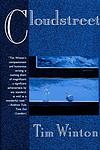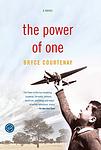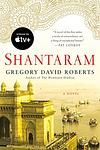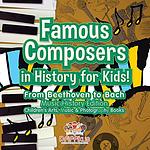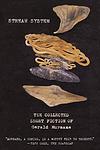The Greatest Russian, Australian "Fiction" Books Since 1970
Click to learn how this list is calculated.
This list represents a comprehensive and trusted collection of the greatest books. Developed through a specialized algorithm, it brings together 291 'best of' book lists to form a definitive guide to the world's most acclaimed books. For those interested in how these books are chosen, additional details can be found on the rankings page.
Genres
Countries
Date Range
Reading Statistics
Click the button below to see how many of these books you've read!
Download
If you're interested in downloading this list as a CSV file for use in a spreadsheet application, you can easily do so by clicking the button below. Please note that to ensure a manageable file size and faster download, the CSV will include details for only the first 500 books.
Download-
1. Life and Fate by Vasily Grossman
"Life and Fate" is a sweeping epic that explores the human condition during the Siege of Stalingrad in World War II. The novel delves into the lives of a wide range of characters, from soldiers and scientists to children and victims of the Holocaust, providing a stark and unflinching portrayal of the horrors of war, the brutality of totalitarianism, and the resilience of the human spirit. At the same time, it also examines themes of love, loss, and the struggle for freedom and dignity in the face of overwhelming adversity.
-
2. The Thorn Birds by Colleen McCullough
"The Thorn Birds" is a sweeping family saga that spans three generations of the Cleary family, set against the backdrop of the Australian outback. It focuses on the forbidden love between the beautiful Meggie Cleary and the family's priest, Father Ralph de Bricassart. The novel explores themes of love, religion, and ambition, as Meggie and Ralph struggle with their feelings for each other and the choices they must make.
-
3. Oscar and Lucinda by Peter Carey
"Oscar and Lucinda" is a novel that tells the story of two unconventional individuals, Oscar and Lucinda, who meet on a ship going to Australia in the mid-19th century. Oscar, a young English clergyman, and Lucinda, a teenage Australian heiress, bond over their shared love of gambling. Their mutual obsession leads to a high-stakes wager that will have lasting consequences for both of them. The novel explores themes of love, faith, and obsession against the backdrop of Victorian-era England and Australia.
-
4. True History of the Kelly Gang by Peter Carey
This historical novel is a fictionalized account of the life of Australian outlaw Ned Kelly, told in the form of a journal written to his daughter. The narrative explores Kelly's life from childhood, his family's struggles with poverty and the law, his involvement in horse thievery, and his eventual formation of the Kelly Gang. The story culminates with the gang's infamous standoff with the police at Glenrowan, providing a humanizing perspective on a figure often portrayed as a ruthless criminal.
-
5. Moscow Petushki by Venedikt Yerofeev
The book is a surreal and satirical narrative that takes the reader on a tragicomic journey aboard a suburban train from Moscow to the small town of Petushki. The protagonist, a disillusioned intellectual and alcoholic, engages in philosophical musings and encounters a variety of eccentric characters, each embodying different aspects of Soviet life. As he delves into ruminations on love, suffering, and the search for meaning amidst the absurdities of existence, the journey becomes a metaphor for the human condition and the societal decay of the USSR, blending dark humor with poignant introspection.
-
6. The Transit of Venus by Shirley Hazzard
The novel follows the lives of two orphaned Australian sisters, Caroline and Grace Bell, who move to England in the post-World War II era. The story revolves around their relationships, particularly Caroline's complex and often tragic love life. The narrative is filled with themes of love, fate, time, and the intricate complexities of human relationships, all set against the backdrop of significant historical events.
-
7. Cloudstreet by Tim Winton
"Cloudstreet" is a sweeping family saga set in post-World War II Australia, following two families, the Pickles and the Lambs, who come to live together in a large, ramshackle house on Cloud Street over two decades. The story explores their struggles, triumphs, and the ways they are haunted and blessed by a mysterious spiritual presence. The novel is a celebration of endurance, unity, and the many forms of love, set against the backdrop of a changing Australia.
-
8. The Power of One by Bryce Courtenay
This novel follows the life of a young English boy named Peekay who grows up in South Africa during the 1930s and 1940s. Despite facing bullying, racial segregation, and the hardships of World War II, Peekay remains resilient and determined to follow his dream of becoming a world-class boxer. Along his journey, he encounters various mentors who teach him about survival, love, and the power of one person to make a significant difference in the world.
-
9. Summer in Baden-Baden by Leonid Tsypkin
"Summer in Baden-Baden" is a unique blend of fact and fiction that intertwines the author's own travels to Leningrad with a reimagining of Fyodor Dostoevsky's summer in Baden-Baden, Germany. The narrative shifts between the two journeys, exploring themes of obsession, identity, and the power of literature. The author's fascination with Dostoevsky serves as a lens through which he examines his own life and experiences as a Jew in Soviet Russia, while also providing a fresh perspective on the famous Russian author's life and works.
-
10. Remembering Babylon by David Malouf
The novel explores the life of a young man who, after being shipwrecked, is raised by Aboriginals in 19th century Australia. After sixteen years, he attempts to reintegrate into European society, but is met with suspicion and hostility due to his adopted culture and lifestyle. The book delves into themes of identity, belonging, and the clash between Aboriginal and European cultures.
-
11. A Fringe Of Leaves by Patrick White
Set in the early 19th century, the novel follows the journey of an Englishwoman who survives a shipwreck off the coast of Australia. Stranded on the unfamiliar continent, she is captured by Aboriginal people and experiences a dramatic cultural clash. As she adapts to the indigenous way of life, she undergoes a profound personal transformation, shedding the constraints of her genteel upbringing. Her struggle for survival and the eventual attempt to return to European society challenge her identity and perceptions of civilization, nature, and self, leading to a deep introspection about her place in the world.
-
12. Tirra Lirra By The River by Jessica Anderson
The novel revolves around the introspective journey of Nora Porteous, a woman who, after years of living abroad, returns to her childhood home in Queensland, Australia. As she reflects on her past, Nora grapples with the constraints of her conservative upbringing, her stifling marriage, and her pursuit of personal freedom and artistic expression. The narrative weaves through her memories, exploring themes of self-discovery, the role of women in society, and the search for identity. Through Nora's eyes, the reader experiences the poignant realization that life may not always align with youthful dreams, and that understanding and reconciling one's past is essential for moving forward.
-
13. The Clay Machine-gun by Victor Pelevin
"The Clay Machine-gun" is a surreal and complex novel that explores the nature of reality and illusion. The story is set in post-Soviet Russia and follows a protagonist who has multiple identities, including a poet in 19th-century Russia, a 20th-century psychiatric patient, and a 21st-century advertising executive. The narrative moves between these identities and realities, blurring the lines between them and creating a layered and philosophical exploration of Russian society, identity, and the human psyche.
-
14. August 1914 by Aleksandr Solzhenitsyn
"August 1914" is a historical novel set during the early days of World War I, focusing on the disastrous Battle of Tannenberg on the Eastern Front. The book provides a detailed portrayal of the Russian army's defeat, largely due to incompetent leadership and lack of communication. The narrative also delves into the lives of the soldiers and civilians involved, offering a broad examination of Russian society and the impending revolution.
-
15. Shantaram by Gregory David Roberts
The novel follows the life of a convicted Australian bank robber and heroin addict who escapes from prison and flees to India. Settling in the bustling city of Mumbai, he assumes a new identity and immerses himself in the local culture, forming a close bond with the people in a slum. As he navigates his new environment, he becomes entangled in various criminal activities, including running a free health clinic, working for the Bombay mafia, and fighting in Afghanistan. Throughout his journey, he grapples with love, forgiveness, and his quest for redemption, all while exploring themes of good and evil, friendship, and the complexities of the human spirit.
-
16. The Commandant by Jessica Anderson
"The Commandant" is a historical novel that explores the life of Frances Forbes, the wife of Commandant Patrick Logan, who was a penal colony superintendent in Australia during the 19th century. The story, narrated by Frances, provides a detailed account of their life in the colony, including the harsh conditions, the social hierarchy, and the relationships between the convicts, soldiers, and officers. The narrative also delves into Frances' personal life, her loneliness, her relationship with her husband, and her struggle to maintain her sanity amidst the harsh and isolated environment.
-
17. Schindler's Ark by Thomas Keneally
The book is a historical novel based on the true story of a German industrialist who becomes an unlikely humanitarian amid the barbaric Nazi reign. When he witnesses the horrors inflicted upon the Jews, he is moved to save as many as he can by employing them in his factory. His actions, driven by courage and compassion, lead to the salvation of over a thousand Jewish workers from certain death in the Holocaust. The narrative explores themes of morality, survival, and the capacity for good in the face of overwhelming evil, as the protagonist navigates the complexities of war and the human spirit.
-
18. The Children's Bach by Helen Garner
"The Children's Bach" is a captivating novel that explores the complexities of family dynamics and the pursuit of happiness. Set in Melbourne, the story follows a group of interconnected characters as they navigate their relationships, dreams, and disappointments. Through beautiful prose and keen observations, the author delves into themes of love, loss, and the search for meaning in everyday life, creating a poignant and thought-provoking narrative.
-
19. Happy Moscow by Andrey Platonov
"Happy Moscow" is a satirical novel set in the Soviet Union during the height of Stalinist rule, following the life of a young woman, Moscow Chestnova, who is named after the capital city. Despite the harsh realities of life under an authoritarian regime, she maintains a positive and optimistic outlook, symbolizing the Soviet Union's propaganda that promoted an image of a happy and prosperous society. The novel, through its characters and their experiences, explores the paradoxes and contradictions of the Soviet society, challenging the official narrative of happiness and prosperity.
-
20. Soul and Other Stories by Andrey Platonov
"Soul and Other Stories" is a collection of short stories that delve into the human condition and the struggle for identity in a world filled with political and social upheaval. The stories are set in a variety of contexts, from the harsh landscapes of Central Asia to the chaos of the Russian Revolution. The characters are often faced with existential crises, grappling with questions of purpose, meaning, and morality. The narrative is marked by a unique blend of philosophical inquiry, poetic prose, and a deep sense of empathy for the human plight.
-
21. Illywhacker by Peter Carey
The novel is a sprawling tale of deception, magic, and family history, narrated by a 139-year-old Australian con artist. He recounts his life's adventures, from snake handling to aircraft manufacturing, while weaving in the stories of his descendants. The narrative is a blend of historical fiction and tall tales, exploring themes of national identity, truth, and the art of storytelling itself. Through the protagonist's unreliable narration, the book challenges the reader to discern fact from fiction, all while painting a vivid picture of Australian society and its transformation over the 20th century.
-
22. Inland by Gerald Murnane
Inland is a complex and introspective novel that explores the inner workings of the human mind and the concept of reality. The story is narrated by a man who is reflecting on his life, his relationships, and his experiences, using the vast landscapes of his native Australia as a metaphor for his inner world. The narrative is non-linear and often fragmented, reflecting the man's scattered thoughts and memories. The novel is a deep exploration of the human psyche, the nature of memory, and the power of the imagination.
-
23. The Little Hotel by Christina Stead
"The Little Hotel" is a novel that revolves around the lives of the guests and staff of a small Swiss hotel post-World War II. The narrative delves into the interactions, secrets, and complexities of its diverse characters, who range from exiles and refugees to tourists and the hotel's proprietors. Through a series of vignettes, the book paints a vivid picture of the human condition, exploring themes of displacement, identity, and the search for stability in a rapidly changing world. The hotel serves as a microcosm of society, where personal dramas and the echoes of global events intermingle, revealing the nuanced tapestry of post-war Europe.
-
24. Norma by Vladimir Sorokin
The book is a surreal narrative that delves into the life of a woman with an extraordinary physiological trait—her breast milk possesses remarkable healing properties. As word of her unique ability spreads, she becomes a valuable commodity in a society that is both fascinated and obsessed with the potential of her gift. The story unfolds in a dystopian world where the protagonist must navigate the complexities of exploitation, power, and the human condition, all while grappling with the implications of her own body's capabilities and the relentless demands placed upon her by those seeking to harness her unusual power for their own purposes.
-
25. A School For Fools by Sasha Sokolov
The novel presents a fragmented and surreal narrative that delves into the mind of a young boy with a learning disability, attending a special school in the Soviet Union. Through a stream-of-consciousness style, the book explores the boy's experiences and perceptions, blending reality with fantasy, and time with memory. The protagonist's inner world is rich with poetic language and vivid imagery, reflecting his struggle to find his place in a society that marginalizes those who are different. The narrative structure defies conventional storytelling, offering a unique and challenging perspective on the nature of sanity, the power of institutions, and the complexity of the human psyche.
Reading Statistics
Click the button below to see how many of these books you've read!
Download
If you're interested in downloading this list as a CSV file for use in a spreadsheet application, you can easily do so by clicking the button below. Please note that to ensure a manageable file size and faster download, the CSV will include details for only the first 500 books.
Download





